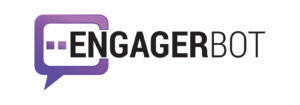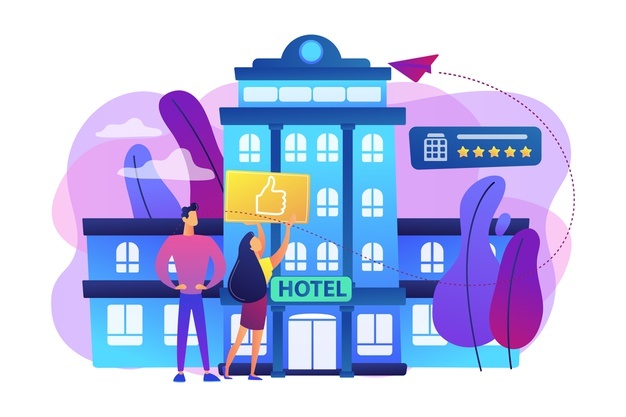Chatbot technology has been created rapidly in recent years and is becoming increasingly popular in the hotel industry. However, several hotel owners are still unaware of what chatbots can offer and how customers benefit from their use. This article will find ten concrete reasons why every modern hotel needs its hotel chatbot.
What is a hotel chatbot?
A hotel chatbot is a form of digital technology that can respond intelligently to human interactions and be used on behalf of a hotel or other business in the hospitality industry. The purpose of a chatbot is to simulate the type of meaningful interactions a customer might have with an actual employee, usually through text.
In most cases, such a hotel bot is used as a digital customer service agent that responds to queries, provides valuable information, and even answers specific questions. How sophisticated a hotel chatbot can generally depend on the underlying technology and how it is used.
How Does a hotel chatbot Work?
A hotel chatbot interprets or understands customer interactions and provides relevant answers to questions or relevant information upon request. Chatbots can be roughly divided into two types:
1. Rule-Based hotel chatbots
Rule-based chatbots are the simplest type of hotel bot available. As the name suggests, these bots can communicate based on a set of clear rules. These are usually based on “if/else” statements. For example, a chatbot could be set up to ask, “Would you like to see our special offers?” If the user says “yes” or selects a “yes” option on the screen, they will be shown special offers. Otherwise, another message may be displayed.
This type of chatbot can be operated via labeled action buttons on the screen, which the user clicks to continue the conversation. However, more advanced chatbots of this type work by recognizing certain words in a user’s input before displaying the following relevant message based on the rules set.
The main advantage here is simplicity, which means they can be highly cost-effective. However, communicating with chatbots can be significantly less natural than interacting with a human, potentially being off-putting.
2. AI-Based hotel chatbots
The alternative to Rule-based chatbots is AI-based chatbots, and these are much more sophisticated. Artificial Intelligence allows them to understand and interpret written communication and then respond appropriately, resulting in highly realistic chat interactions, similar to a customer service representative.
Some of the most advanced AI bots even go a step further and use machine learning to pick up information and adapt their communication accordingly. For example, a hotel chatbot can find a user’s preferences, piece together the information, and make an intelligent recommendation.
AI-based chatbots offer much more personalization and lead to more natural communication. They are also usually more accessible for customers to use, and machine learning leads to continuous improvement.
10 Reasons Why Every Hotel Needs a hotel chatbot
Below are ten concrete reasons why chatbots have become an essential part of many hotel management strategies.
1. 24/7 customer service
Modern customers have high expectations when it involves customer service response times. This can be particularly challenging in the travel and hotel industry, as customers from all over the world may have questions and ask them at different times. hotel chatbots can help by providing 24/7 customer service.
In simple terms, this means that customers can get a timely response regardless of the moment of the day, even if you don’t have customer service representatives to answer them in person.
2. Increase Direct Bookings
For the hotel industry, increasing direct bookings is a top priority. After all, hotels don’t have to pay commission for these bookings, which leads to higher profits. A hotel chatbot can help with this by increasing the number of conversions on the hotel website by answering questions quickly.
In addition, can also use chatbots on social media and instant messenger platforms by offering the possibility to book directly through these platforms or by offering direct links to the primary booking system.
3. Support Throughout the Booking Journey
A hotel chatbot can help increase the number of bookings made and reduce the number of abandoned halfway through by providing helpful, personalized support throughout the booking process. Customers can ask the chatbot queries and request information, while the chatbot can encourage progress.
Chatbots can also be used at the beginning of the booking process to learn what a particular user is looking for, how much money they want to spend, etc., before making intelligent recommendations.
4. Communicate in Multiple Languages
Whether you use a Rules-based or an AI-based hotel chatbot, you can offer support for several different languages. This can be particularly helpful for hotels, as guests come from all over the world, and employing staff with the necessary translation skills is probably not feasible.
AI chatbots, in particular, translate a breeze. This means that customers can get the answers to their specific questions in their language, regardless of the language they use.
5. Up-Sell and Cross-Sell Opportunities
A chatbot can help increase the number of direct bookings and provide a hotel with more opportunities for upselling and cross-selling. This can also be done naturally, matching what was said in the chat, increasing the likelihood that a customer will take advantage of these opportunities.
The chatbot could use the information gathered to offer additional options such as breakfast or wellness offers during the booking process. When a specific room is selected, a chatbot could make a recommendation for a room upgrade. During the stay, a chatbot could also provide live information about restaurant availability.
6. Personal Experience
AI-driven chatbots can help hotels deliver a far more personalized guest experience, and this can start before the guest has even begun the booking process. As mentioned earlier, intelligent recommendations can be made before or during the booking process, but this is also possible afterward.
A hotel chatbot can identify the guest’s preferences through intelligent follow-up questions and then make recommendations for places to see, things to do, car rentals, or restaurants.
7. A More Efficient Customer Experience
Chatbots provide 24/7 availability for online customer contact and improve the overall efficiency of the on-site customer experience. One method to achieve this is to use a hotel chatbot to help with check-in and check-out.
With the help of a smartphone app and chatbot technology, it is possible to complete check-in and check-out using just a smartphone without visiting the hotel reception, thus eliminating waiting times.
8. Reduced Burden on customer service Staff
In the modern age, customer service teams in hotels can quickly become overloaded. After all, they have to deal with guests who want to speak to a customer service representative in person simultaneously, respond to inquiries and other contacts via Facebook, Twitter, and email, and process feedback from customer surveys.
A hotel chatbot can alleviate this pressure by providing quick response times to reduce backlogs and handle many of the most common or most accessible customer service requests, leaving staff to deal with the more complex cases.
9. Personalised Promotional Efforts
Hotels’ marketing efforts often include sending marketing emails, but these techniques are not always very successful. After all, many people ignore marketing emails even if they have specifically ticked off a form they would like to receive. Part of the problem is that they are often generic and repetitive.
A hotel chatbot can improve this situation by offering a higher level of personalization. For example, a chatbot message sent via a social media platform or a chatbot message that appears on the hotel website can lead to a much more personalized, two-way conversation that is more likely to result in a sale.
10. Follow Up With Your Guests
Hotels are increasingly recognizing the importance of connecting with guests after check-out to get feedback. Chatbots are ideal for this. They reach out to guests through multiple channels and learn what guests liked and didn’t like, what improvements they would suggest, and how they perceived the hotel overall.
Data or AI-driven chatbots can also personalize their follow-ups and provide further updates about the hotel itself, helping to generate the kind of customer loyalty that leads to repeat visits.
Have you checked out our Hospitality Chatbot yet?
It helps you keep your website is in tip-top shape. Check it out now here: Hospitality Chatbot
Read More: The Future of the Healthcare Industry

